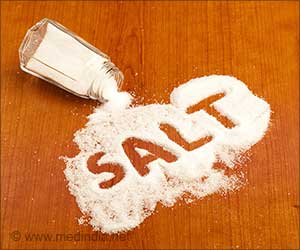
Narrowing of the arteries to the kidney — known as renal artery stenosis (RAS) — is mainly caused by the build-up of fat and cholesterol (atherosclerosis) along the artery walls. The plaque build-up can cause high blood pressure and kidney damage. While kidney artery stenting is considered a safe procedure, the efficacy of the procedure for lowering blood pressure and preventing injury that leads to end-stage renal disease remains unclear, particularly when compared to medicines alone.
"Findings from the HERCULES trial expand scientific evidence of renal artery stenting in treating patients with high blood pressure who do not respond to standard therapy," explains Michael R. Jaff, DO, FSCAI, from the Vascular Center at Massachusetts General Hospital in Boston. "As part of the trial we also explored the predictive value of the brain natriuretic peptide (BNP) test prior to performing the stent procedure." The BNP test is used to diagnose heart failure and researchers sought to understand if BNP could predict clinical success, which is valuable information for interventionists prior to performing invasive procedures.
For the HERCULES trial researchers enrolled 202 patients with 241 total lesions and 78 bilateral lesions between August 2007 and October 2009. Patients had a history of high cholesterol levels and active or recently discontinued tobacco use. The majority of participants were Caucasian, mean age was 72 years, and 62% of patients were female. BNP testing was performed before and after stenting with the RX Herculink Elite Renal Stent System by Abbott Vascular.
At the start of the trial the mean systolic blood pressure of the trial group was 162 mm Hg and nearly 70% of patients were taking three or more medications to control hypertension. Success rates for the trial device, procedure and clinical outcomes were 96%, 99%, and 98%, respectively. Researchers reported that freedom from major adverse events (death, kidney removal, or embolism causing renal injury) was 95%.
Further results show that at the nine-month follow-up the restenosis rate was 11% and the mean systolic blood pressure for participants was 145 mm Hg post-stenting with no change in medications. Researchers found no association between a reduction in blood pressure following stenting and elevated BNP pre-procedure, or a decrease in BNP levels following successful stenting. While there was a significant decrease in BNP following stenting, the BNP level prior to the procedure was not reliable in predicting blood pressure response.
Advertisement
In a related video, Dr. Jaff discusses specifics of his research with Steven R. Bailey, MD, FSCAI, Editor-in-Chief of Catheterization and Cardiovascular Interventions. "The research by Dr. Jaff and colleagues is an important contribution to the evidence supporting stenting as an effective intervention for patients with renovascular disease," said Dr. Bailey.
Advertisement
Source-Eurekalert














